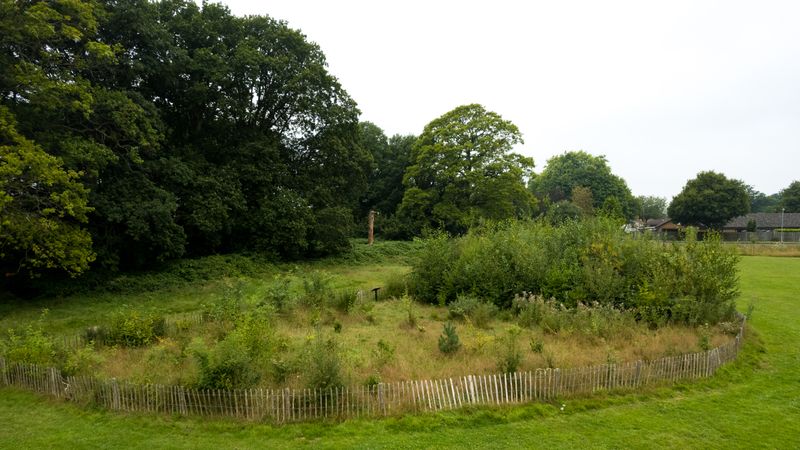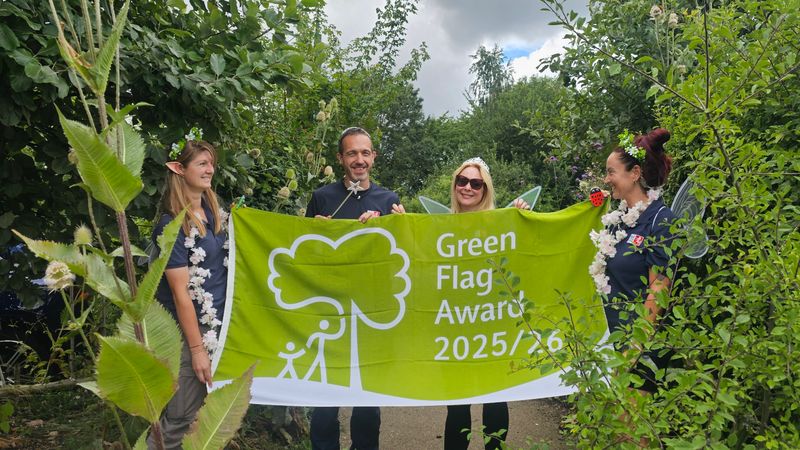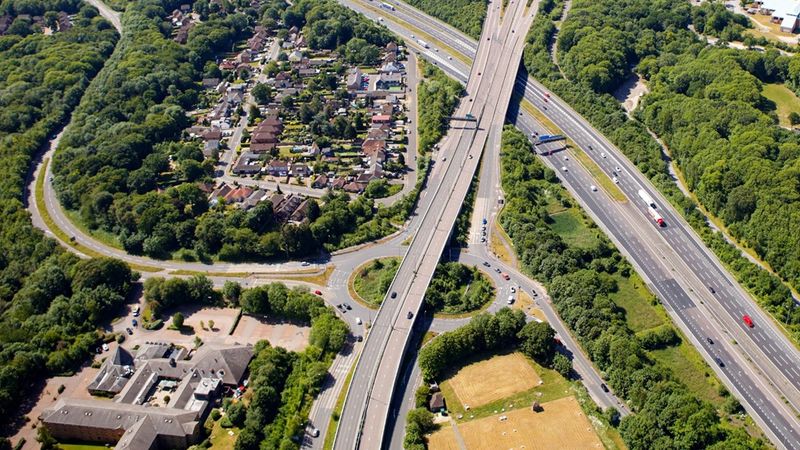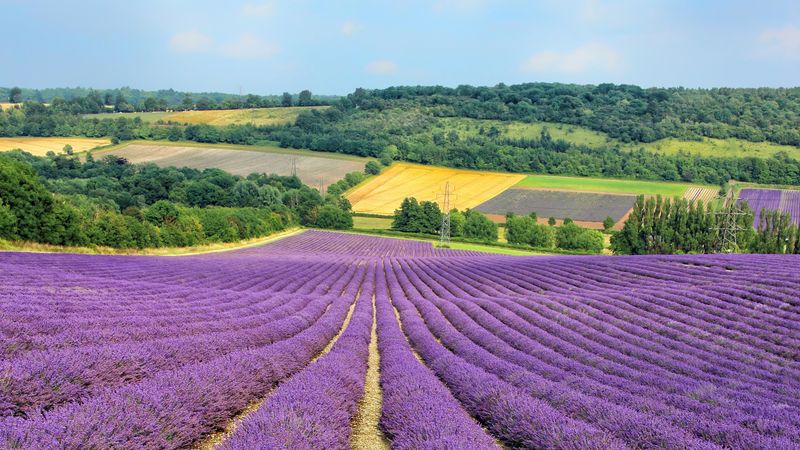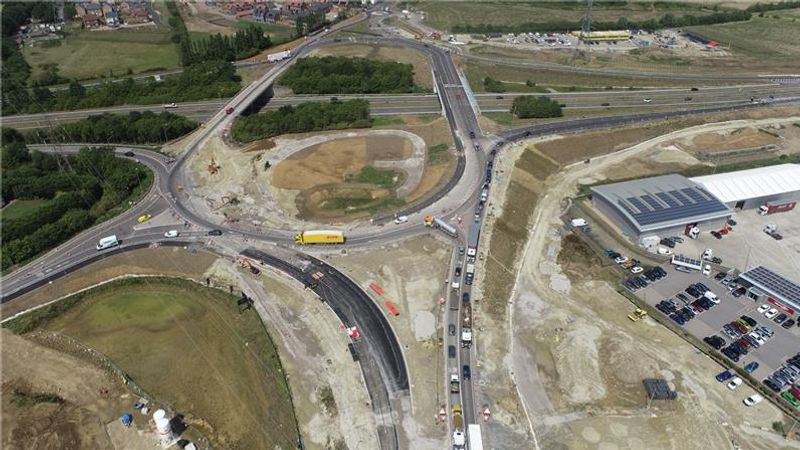Since 2020, KCC has been part of the collaborative ‘Trees Outside Woodlands’ project, a partnership led by The Tree Council, Defra, and Natural England. The project runs a series of trials aiming to find reliable and cost-effective approaches for councils to successfully establish trees in both urban and rural environments, and maximise the benefits of nature for people, wildlife, and the climate.
The Miyawaki method’s objective is to restore native forests on deforested or degraded land and has worked successfully in Asia for more than 50 years. The Trees Outside Woodlands project has experimented with an adapted version of the planting method, using urban sites with poor quality soil and a record of previous planting failures.
One of the pilot project sites was Park Wood in Maidstone - an open recreation area that was previously a builder's yard, with compacted and degraded soil. In 2021, a variety of native tree and shrub species were planted using the Miyawaki method, next to a comparison plot using the planting method typically used by KCC.
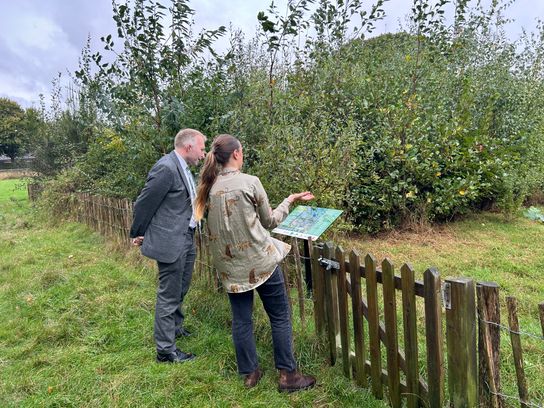
Rob Thomas, Cabinet Member for Environment, visits Park Wood in Maidstone to see how well the trial has done and to find out more about future trials in Kent.
A recent analysis has found an exceptionally high survival rate of 99% in the area planted using the Miyawaki method. Today, the Miyawaki method trees resemble a dense thicket of early woodland, with some of the bigger trees already reaching fifteen feet tall. Some species are faster growing than the others, many are flowering and producing seed, and wildlife is making a home within the plot.
In the comparison plots, most of the surviving trees are also doing well with an 82% survival rate, but the growth has been visibly slower, with trees at waist to shoulder height, and some have suffered the effects of vandalism, with stems being snapped.
The long-term results of planting using the Miyawaki method in the UK are still unknown, however, in the meantime, the trial plots have already provided an instant impact feature with benefits for biodiversity and local people.
KCC is now in the next phase of the trial, with trees having recently been planted in a number of urban locations, including Cornwallis Park, Maidstone which is testing different elements of ground preparation from the Miyawaki method to identify what helps trees establish effectively.

“It’s important to try a variety of methods, new and old, for establishing trees in urban settings to contribute to better air quality.”
Rob Thomas, Cabinet Member for Environment, said: “It’s important to try a variety of methods, new and old, for establishing trees in urban settings to contribute to better air quality.
‘Although urban tree planting can be difficult, these trials have found that adapting the Miyawaki method appropriately can be an effective way to establish young trees which are resilient to the stressors of urban areas and will boost our local ecosystem.”

“We are hopeful that the trials will add to existing and evolving research into and learning from the Miyawaki method and other urban planting techniques.”
Neil Baker, Cabinet Member for Highways and Transport, said: “I am pleased that KCC is among the first to trial an adapted version of the Miyawaki tree planting method, and that it has been such a success for the plots using it in Kent.
‘We are still learning about this method and continue to monitor progress. We are hopeful that the trials will add to existing and evolving research into and learning from the Miyawaki method and other urban planting techniques.”
Natural England Chair Tony Juniper said: "There are many good reasons for having more trees in our towns and cities. Native deciduous species support wildlife, such as insects, birds and bats, and bring shade in summer while letting in light in winter. Trees help combat air pollution and enrich green spaces to promote mental health benefits. All of that adds up to huge social benefit and invites the question of how we can support local authorities in getting more trees close to where most of us live."
"This study is looking for answers and the results will help inform future decision making to increase successful and reliable young tree establishment and protect newly planted trees so that they grow and thrive in local areas and provide benefits for generations to come.”
To find out more about the project visit: Establishing trees outside woodlands - The Tree Council
Notes to Editor
The Trees Outside Woodlands project is funded by HM Government’s Shared Outcomes Fund, it is a £4.8m 5 year programme delivered in partnership with The Tree Council, Natural England, Defra, Kent County Council, Chichester District Council, Cornwall Council, Norfolk County Council and Shropshire Council. The projects aim is to develop innovative and sustainable new ways to increase tree cover, to address both climate and ecological emergencies.
The Trees Outside Woodland project planted 16 different Miyawaki method trial sites across four local authorities, with a variety of native tree and shrub species planted densely at 3-5 trees per square metre in prepared and enhanced soil, alongside a comparison plot using more typical planting methods.
